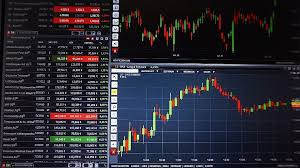
In the dynamic world of finance, forex trading regulations Forex Trading Apps have revolutionized the way traders engage with the market. However, as the popularity of forex trading has surged, so too have the regulatory frameworks aimed at governing it. Understanding forex trading regulations is crucial for traders who wish to navigate the market safely and profitably. This article provides a deep dive into the essential aspects of forex trading regulations, their importance, and how they vary across different regions.
What Are Forex Trading Regulations?
Forex trading regulations are rules and guidelines established by financial authorities to govern the conduct of forex brokers and traders. The primary goal of these regulations is to protect traders from fraud, ensure fair trading practices, and maintain the integrity of the financial markets. Regulatory bodies oversee the licensing of brokers, monitor trading activities, and enforce compliance to safeguard the interests of traders.
Importance of Forex Trading Regulations
Regulations play a vital role in the forex trading environment for several reasons:
- Protection Against Fraud: Regulators work to prevent fraudulent activities, ensuring that brokers are legitimate and that traders’ funds are secure.
- Market Integrity: Regulations help maintain a level playing field, preventing manipulation and unethical practices that could distort market prices.
- Consumer Confidence: Knowing that a robust regulatory framework is in place encourages more traders to participate in the forex market.
Global Regulatory Bodies
Forex regulations vary significantly from one jurisdiction to another. Here are some of the key regulatory bodies that oversee forex trading in different regions:
- Financial Conduct Authority (FCA) – United Kingdom: The FCA is one of the most reputable regulatory bodies in the world. It ensures that brokers adhere to strict standards of conduct.
- Commodity Futures Trading Commission (CFTC) – United States: The CFTC provides oversight over the U.S. forex market, offering protections against fraud and abuse.
- Australian Securities and Investments Commission (ASIC) – Australia: ASIC regulates financial markets and provides a level of security for traders operating in Australia.
- European Securities and Markets Authority (ESMA) – European Union: ESMA works to ensure that the financial markets in the EU are secure and transparent.
- Financial Services Authority (FSA) – Japan: The FSA regulates forex brokers in Japan, ensuring compliance with local laws.
Types of Forex Regulations
Forex regulations can be broadly classified into different categories:
- Licensing: Regulatory bodies issue licenses to brokers, which ensures that they meet certain operational standards.
- Capital Requirements: Brokers must maintain a minimum level of capital to ensure that they can handle customer withdrawals and other operational costs.
- Segregation of Funds: Regulations often require brokers to keep clients’ funds in separate accounts, protecting them from broker insolvency.

Choosing a Regulated Forex Broker
When selecting a forex broker, it’s essential to ensure that they are regulated by a recognized authority. Here are some steps to help make an informed choice:
- Check Regulatory Status: Visit the regulatory body’s website to verify that the broker holds a valid license.
- Review Regulations: Understand the specific regulations governing the broker’s operational jurisdiction.
- Look for Reviews: Check for customer reviews and feedback concerning the broker’s conduct and reliability.
The Impact of Regulations on Trading
Regulations can also influence trading conditions, including leverage, spreads, and trading hours. For example, regulatory bodies in Europe have imposed restrictions on the maximum leverage that can be offered to retail traders, which can impact trading strategies. Understanding these nuances can help traders adapt their approaches to comply with the regulations while still aiming for profitability.
Recent Changes in Forex Regulations
The regulatory landscape for forex trading is continually evolving. For instance, the implementation of the MiFID II directive in Europe has changed how forex brokers operate, necessitating more transparency and investor protection measures. It’s essential for traders to stay informed about such changes, as they can affect trading strategies and broker selection.
Challenges in Forex Trading Regulations
While regulations are designed to protect traders, they can also present challenges:
- Complexity: Navigating the myriad regulations can be complicated, especially for new traders.
- Variation Across Jurisdictions: Different countries have different standards and requirements, which can lead to confusion.
Conclusion
Forex trading regulations serve as a framework that supports safe and fair trading practices. By understanding the importance of these regulations, the various regulatory bodies, and the evolving landscape of forex trading, traders can make informed decisions and minimize risks. Whether you are a seasoned trader or new to the forex market, staying updated on regulations will help you navigate this exciting yet complex financial realm with confidence.

